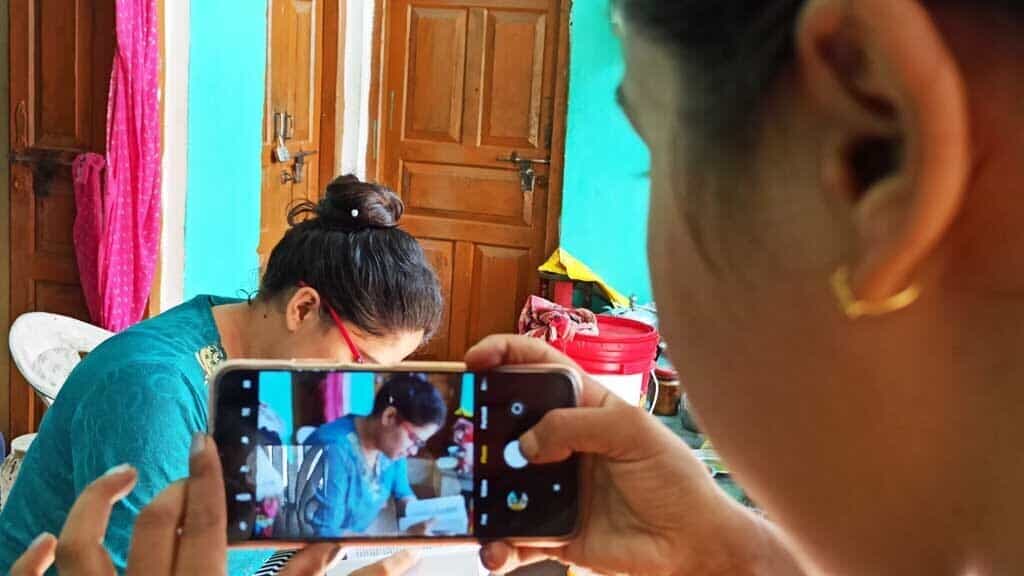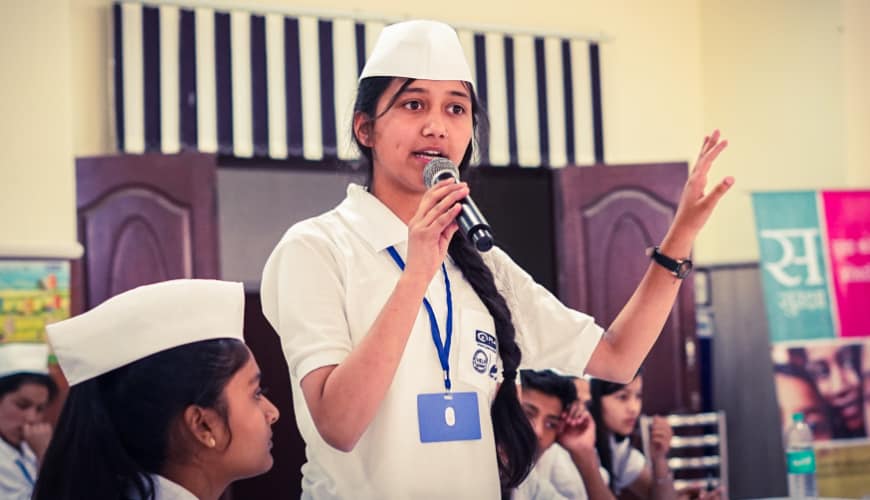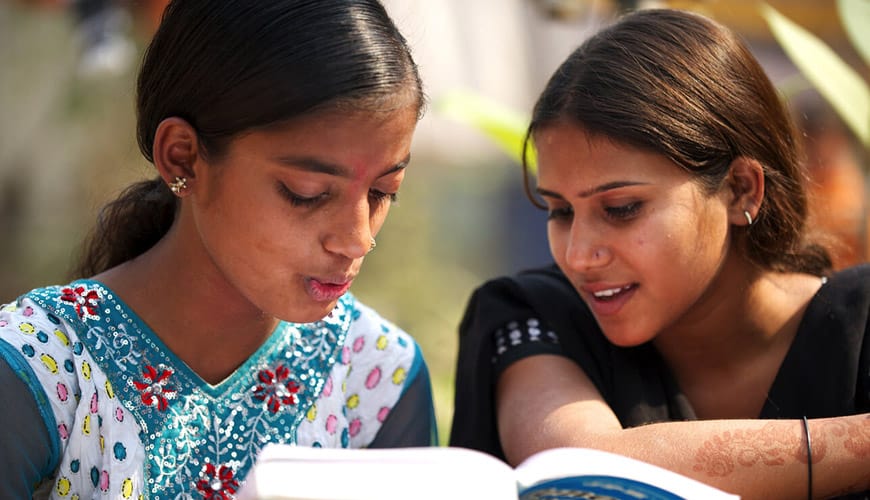Indian schools witness a sharp drop in the number of enrolments, especially for girls, after grade 8¹ as about 42% children enter the workforce soon after completing the minimum schooling mandated by the Right to Education Act (2009). Of the small percentage that remains, quality education is not affordable and is often reserved for the boys. Plan India has set about levelling the playing ground for girls through its Digital Learning Centres (DLCs). Based on the Communications for Development (C4D) approach, these networked centres utilise internet-based solutions to provide quality education to girls and young women in the age group of 12- 20 years and help them complete their education at least till grade 10. Recognising an important link between the limited mobility of girls and access to progressive learning opportunities, the project takes learning support right to their communities.
Digital Learning Centres work to:
- Address challenges posed by unequal lives, education and employment opportunities
- Support continued higher education through tutoring and career counselling
- Impart leadership skills and personality development to strengthen their self-esteem
The project also makes use of policy-based advocacy a key method for creating real change. Parents who associate TVs with only entertainment are educated about blended learning and counselled through sustained home visits to change perceptions about girls’ potential. Involving fathers to connect digitally and inspire each other has resulted in their becoming advocates for gender equality. An extensive alumni group now acts as peer educators, help develop projects at the centres and champion the change from within communities.
The DLCs in Delhi, Bengaluru, Chennai and Hyderabad are networked DLCs and use the internet to provide quality education. These DLCs have trained 65.4% of the alumni and the plan is to replicate them across India. Another model being implemented in states like Bihar, Jharkhand and Uttar Pradesh is non-networked DLCs which are smart classrooms and cater to children from schools and government-run children’s homes. DLCs remain a powerful tool in fulfilling Plan’s broader mission-building girls’ agency to have greater control over decisions that affect them while strengthening their voice through knowledge, confidence and skills.
Highlights
- 104 networked and non-networked DLCs and 4 hubs set up
- 100,000 families sensitised till date about the need for girls’ education
- 23,857 girls graduated after receiving support to complete high school








